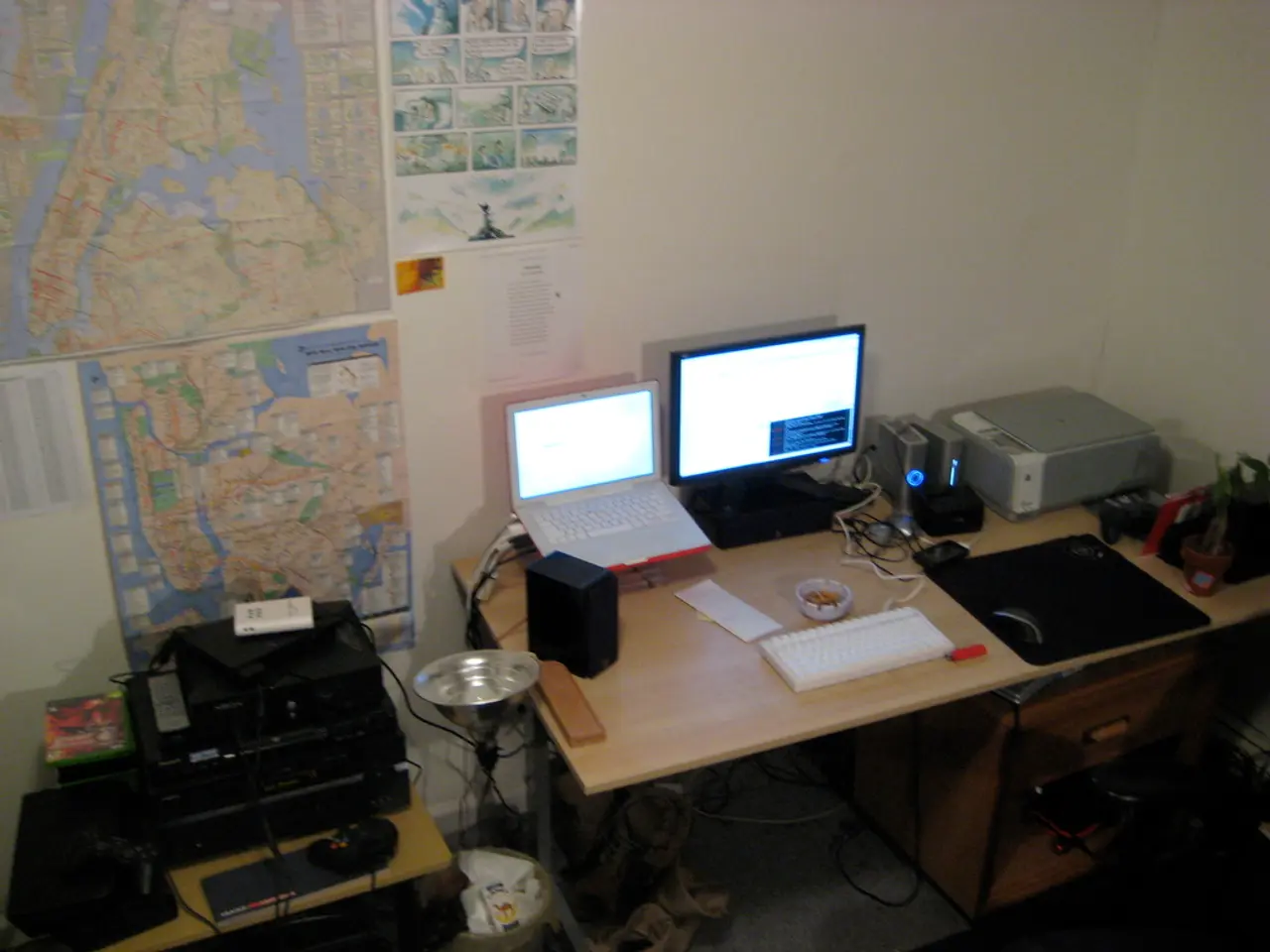Innovations Transforming Today's World and Molding Tomorrow's Era
In the ever-changing landscape of the modern world, technology plays an integral role in shaping our daily lives. Originating from the application of scientific knowledge for practical purposes, technology encompasses a wide array of tools, machines, systems, and processes that have revolutionised communication, productivity, healthcare, and personal contributions to technological advancements.
The historical evolution of technology can be traced back to the invention of the wheel, with significant milestones such as the printing press and the internet marking pivotal moments in its development. Early communication improvements emerged with inventions like the printing press (1455), which caused an information explosion by making books widely available. The telegraph, telephone, and fiber optic lines during the Industrial Revolution enabled rapid exchange of information across distances, accelerating the spread of innovations and knowledge. The 20th century introduced radio, television, and eventually the Internet, drastically increasing the speed and reach of communication worldwide. Today, artificial intelligence (AI) assists with communication through virtual assistants (e.g., ChatGPT, Siri) and apps that streamline tasks like messaging and scheduling, making communication even more efficient and personalised.
Productivity has also seen a dramatic transformation thanks to technology. The Industrial Revolution was a pivotal era with inventions like the steam engine, railways, and mechanized manufacturing increasing production efficiency and transforming economies. Labor-saving machines such as the spinning jenny and powered vehicles greatly enhanced industrial and agricultural productivity. Modern AI tools now act as digital assistants that automate routine tasks, manage workflows, and help users optimise time, thus magnifying individual productivity in everyday life.
In the field of healthcare, technology has improved medical research and patient data management. Industrialization enabled mass production of precise medical instruments and tools, improving diagnosis and treatment availability. Advances in communication facilitated the rapid sharing of medical discoveries and treatments among physicians, raising healthcare quality globally. In the 20th and 21st centuries, medical technology expanded dramatically with innovations such as CT, PET, MRI scanning, dialysis machines, pacemakers, and advanced pharmaceuticals. AI is increasingly aiding healthcare by supporting diagnostics, personalised medicine, and remote monitoring, thereby improving patient outcomes and access to care.
Technology has also democratised innovation, allowing more people to engage in innovation and adoption. Historically, technological progress was driven by inventors, engineers, and scientists who introduced groundbreaking devices like the mechanical clock, printing press, and steam engine. Today, individuals contribute through digital platforms, open-source software, AI tools, and participatory projects, enabling everyday users to customise and improve technology for personal and community use.
The digital age has also transformed work, learning, and socialising by providing tools for communication, information, entertainment, and productivity. Smart devices such as smartphones, tablets, and laptops have become an integral part of daily life, making it easier for employees to collaborate, access information, and work remotely, thereby allowing businesses to adapt to changing market conditions.
In today's world, everyone has a part to play in the ongoing tech revolution by staying informed, supporting technological advancements, and using technology responsibly. This includes protecting online privacy, avoiding the spread of misinformation, and using technology to address global challenges such as climate change and social inequality. It is crucial to be aware of the ethical implications of AI and other emerging technologies to ensure responsible use and mitigate potential negative impacts on individuals, society, and the environment.
In summary, technological evolution has moved from basic tools and mechanical devices to highly sophisticated digital and AI-driven systems. This trajectory has continuously reshaped how humans communicate, work, heal, and innovate, profoundly enriching daily life and expanding the scope for personal impact on technological progress. Supporting innovation in technology, whether through funding startups, participating in open-source projects, or advocating for technology education, can lead to benefits for society as a whole.
- Artificial intelligence (AI), a significant aspect of data-and-cloud-computing technology, is revolutionizing communication by assisting with virtual assistants and apps that enhance task efficiency and personalization.
- In the healthcare sector, the evolution of technology has led to the development of AI tools that aid in diagnostics, personalized medicine, and remote monitoring, thereby enhancing patient outcomes and access to care.




